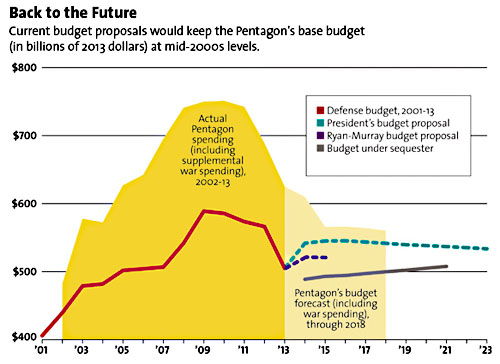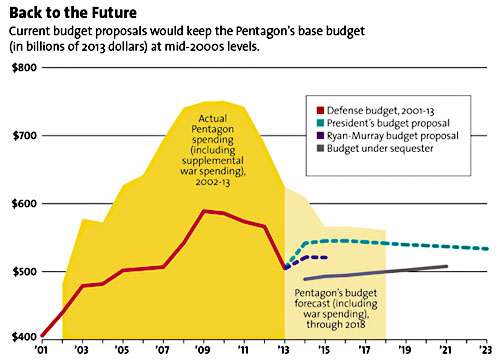
Yesterday’s budget deal doesn’t spare the Pentagon from the full impact of the sequester cuts, but it sure eases the impact considerably. As things stand now, the inflation-adjusted defense budget is still bigger than it was in 2001, before the 9/11 buildup, and shows no signs of ever coming back down to that level. The chart below tells the story:

This is part of “Can’t Touch This,” a detailed look at the Pentagon budget from our upcoming print edition. The story it tells is pretty simple: the defense budget skyrocketed after 9/11 and never fully returned to its pre-war level. The base budget (which doesn’t count the cost of Iraq and Afghanistan) ran to about $1,400 per person in 2001, and by the end of this decade, nearly 20 years after 9/11, it will still be over $1,600 per person.
In past wars, we usually got a peace dividend afterward as spending returned to its old level. It happened after Vietnam and it happened after the Cold War. But this time it’s stalled. Spending is down a bit from its Bush-era peak, but only a bit. The war on terror, apparently, really is a forever war.















